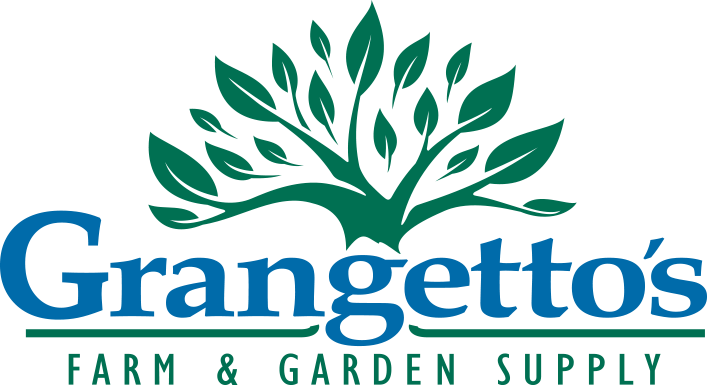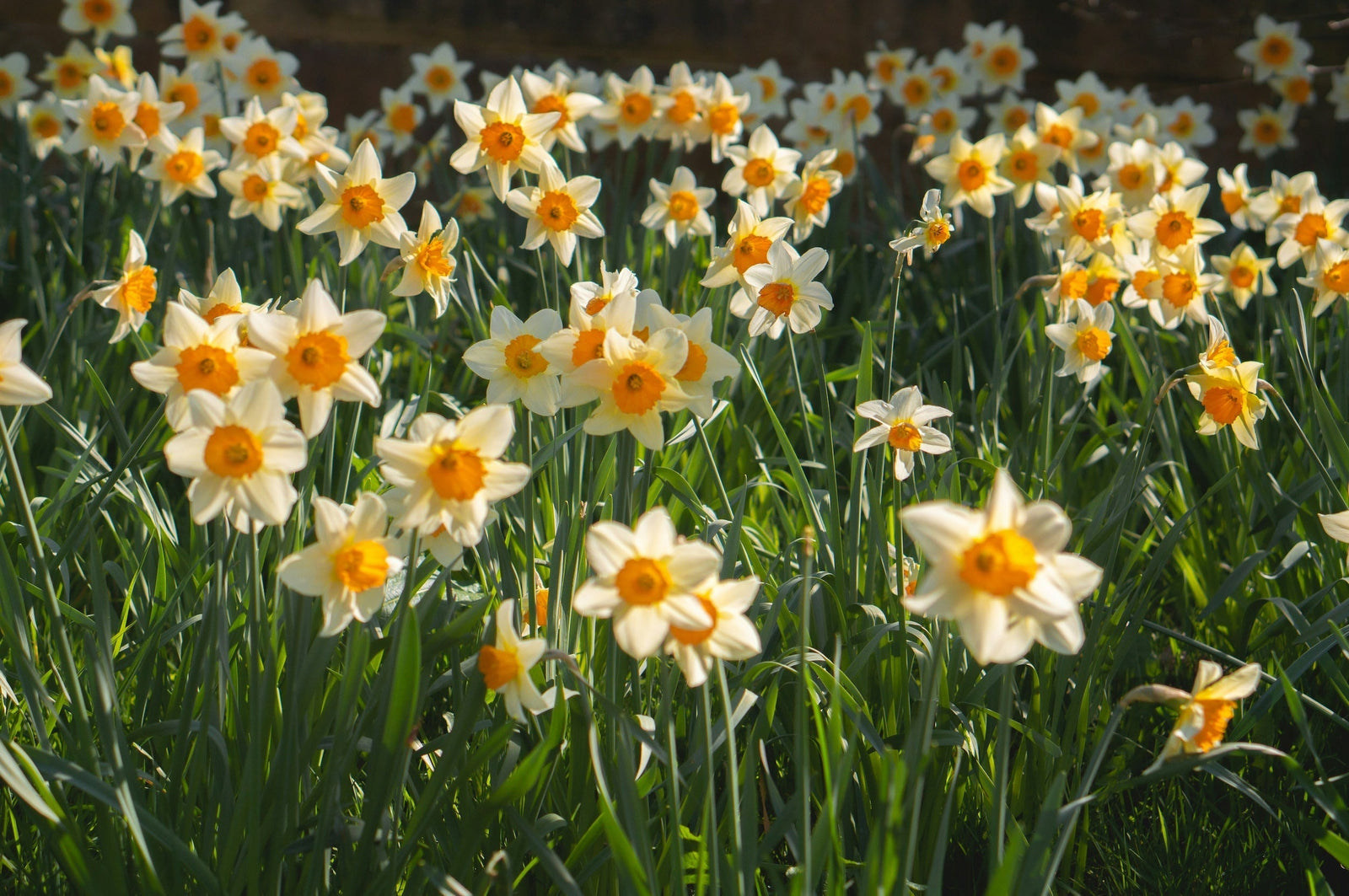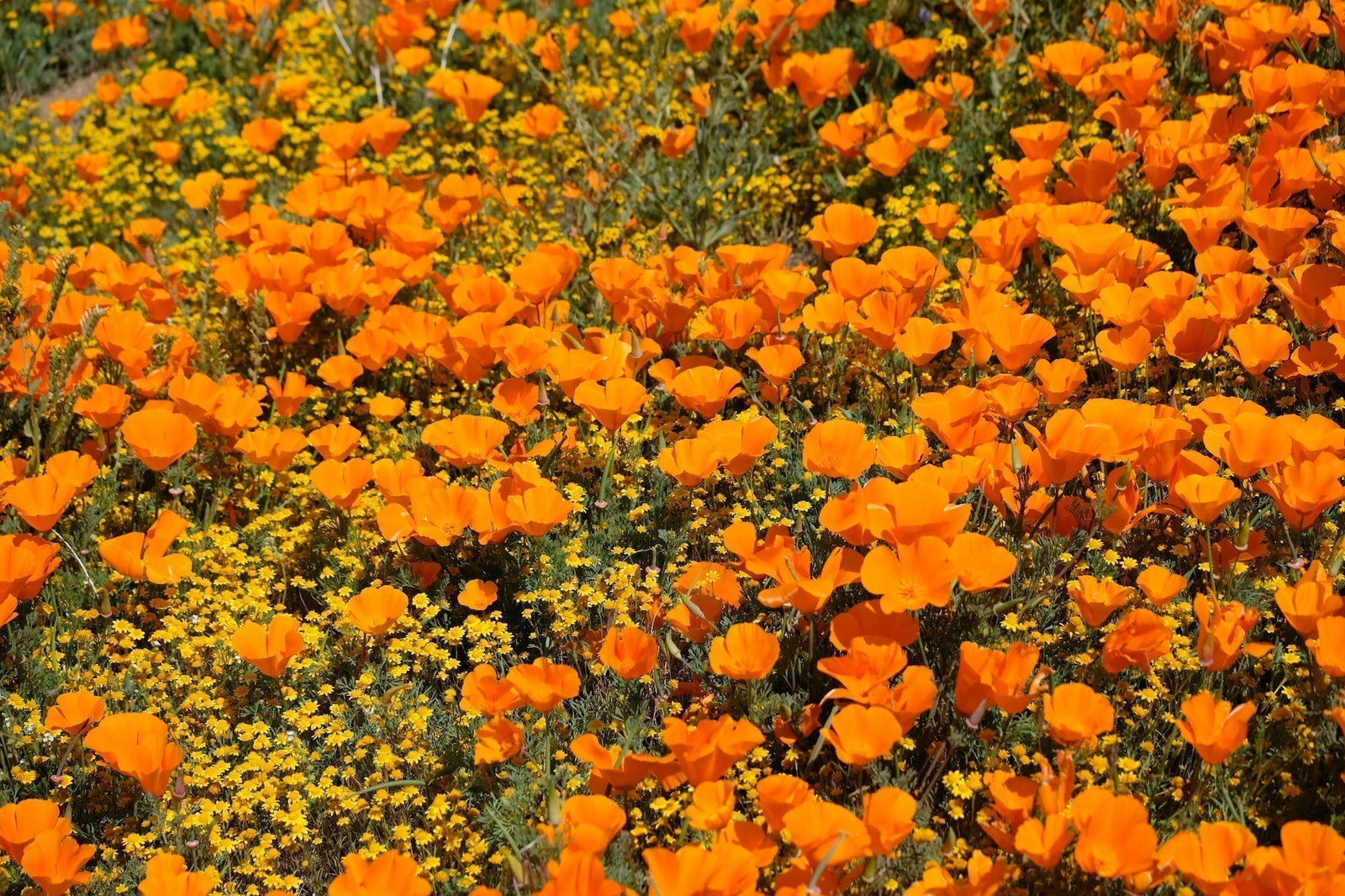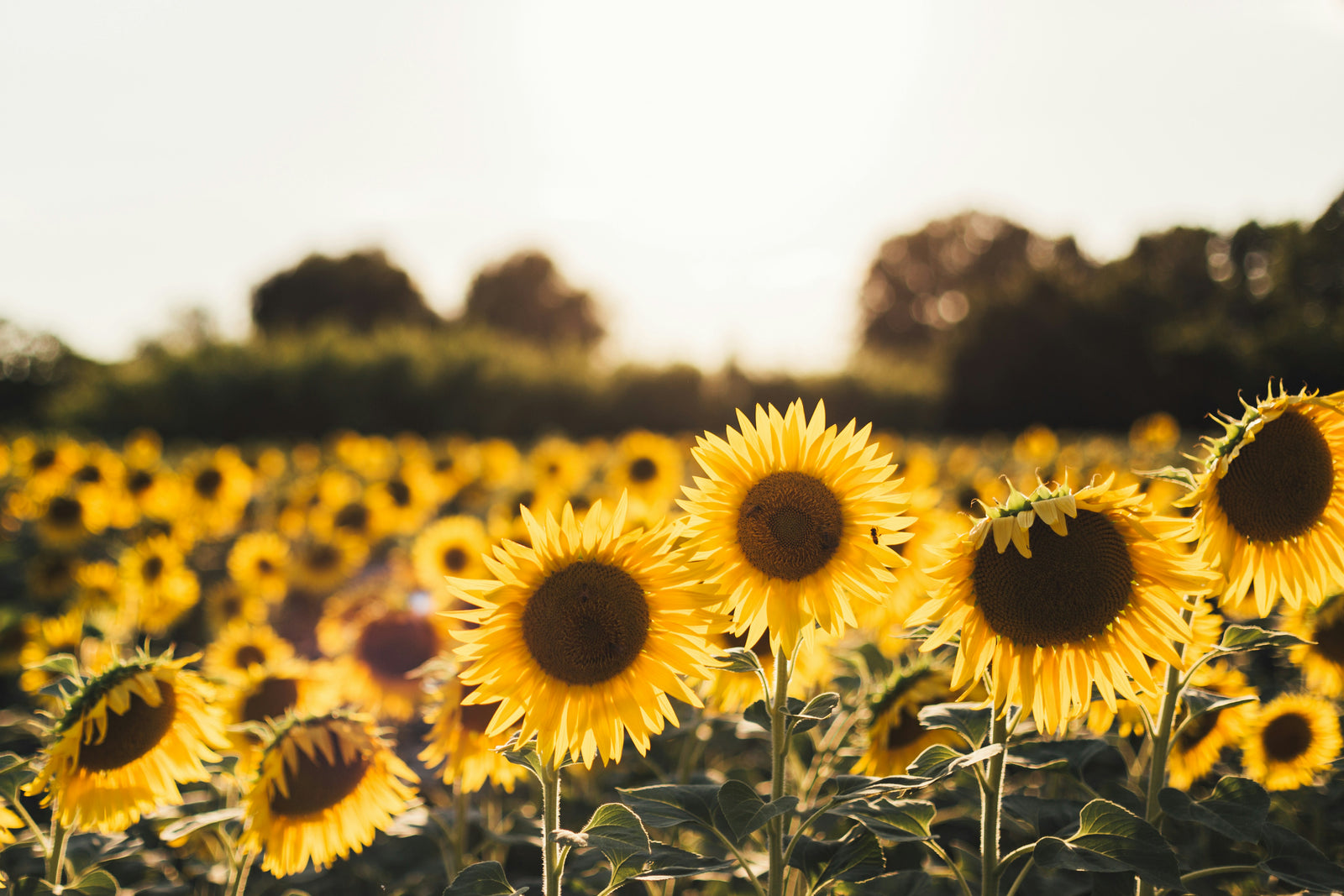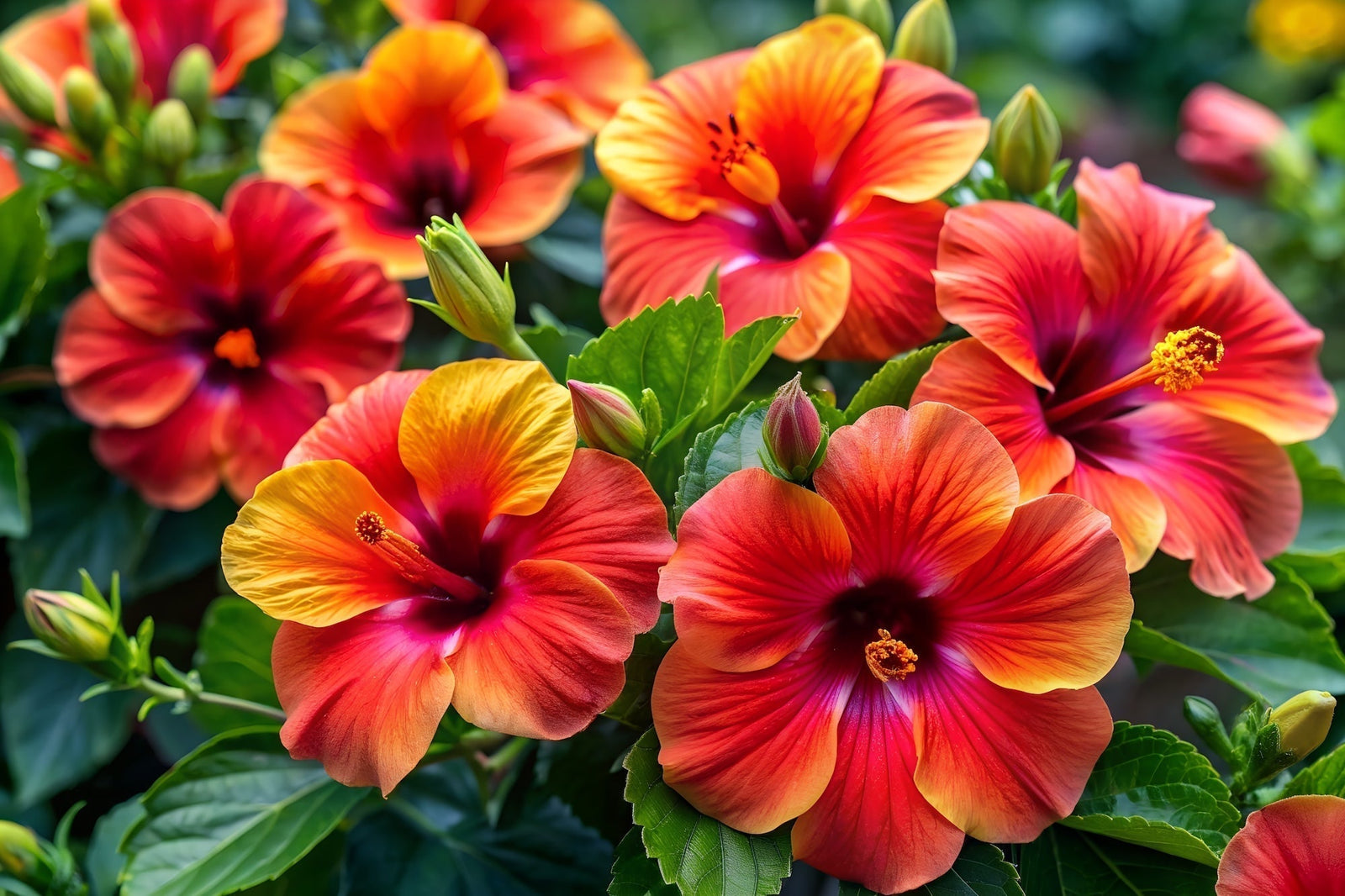
Table of Contents:
- Introduction: Why Hibiscus Thrives in San Diego
- Choosing the Right Hibiscus Variety
- When and Where to Plant Hibiscus
- Soil Prep and Fertilization
- Watering and Sunlight Needs
- Pruning and Pest Prevention
- 10 Fun Facts About Hibiscus
- Tropical vs. Hardy Hibiscus: Quick Comparison Table
- Final Thoughts: Stop by Grangetto's for Local Advice and Supplies
1. Introduction: Why Hibiscus Thrives in San Diego
With its long blooming season, warm temperatures, and coastal breezes, San Diego offers the perfect environment for growing hibiscus. These tropical beauties bring bold color and an exotic touch to gardens, patios, and hedges throughout Southern California. At Grangetto's Farm and Garden Supply, we help local gardeners choose the right hibiscus varieties and keep them blooming all season long.
 Left image: Tropical Hibiscus / Right image: Hardy Hibiscus. | Photos: Shutterstock.
Left image: Tropical Hibiscus / Right image: Hardy Hibiscus. | Photos: Shutterstock.
2. Choosing the Right Hibiscus Variety
There are two main types of hibiscus: Tropical and Hardy.
- Tropical Hibiscus (Hibiscus rosa-sinensis): Great for coastal climates, comes in vibrant colors, and prefers warmer conditions.
- Hardy Hibiscus (Hibiscus moscheutos): Tolerates cooler temps, produces large, showy flowers, and is more resilient in inland zones.
3. When and Where to Plant Hibiscus
The best time to plant hibiscus in San Diego is spring through early summer, once the soil warms up. Choose a spot that gets 6+ hours of full sun per day and has good drainage. Hibiscus also does well in large containers—ideal for patios and small gardens.
4. Soil Prep and Fertilization
-
Soil: Hibiscus prefers slightly acidic, well-draining soil. Amend with compost or organic planting mix.
- Fertilizer: Use a balanced or slightly high-potassium fertilizer (like 10-10-10 or 10-20-10) every two weeks during the growing season. Organic options like G&B Organics are available at Grangetto's.
5. Watering and Sunlight Needs
-
Watering: Keep soil evenly moist, especially during hot weather. Avoid letting the soil dry out completely.
- Sunlight: Hibiscus thrives with full sun. Morning sun with afternoon shade can help prevent heat stress during the peak of summer.
 Photo: Unsplash / Jack Bulmer
Photo: Unsplash / Jack Bulmer
6. Pruning and Pest Prevention
-
Pruning: Prune lightly in late winter or early spring to shape the plant and remove dead wood.
- Pests: Watch for aphids, whiteflies, and spider mites. Use Safer® Insecticidal Soap or neem oil for organic control.
7. 10 Fun Facts About Hibiscus
-
Medicinal Use: Hibiscus tea is rich in antioxidants and is used around the world to support heart health.
-
Cultural Symbol: It's the national flower of Malaysia and the state flower of Hawaii.
-
Cool Down Naturally: Hibiscus tea (known as agua de jamaica) is a popular, refreshing summer drink.
-
Diverse Species: There are over 200 species of hibiscus!
-
Tropical Giants: Some types grow over 15 feet tall.
-
Sun Seekers: Hibiscus needs lots of sun to bloom well.
-
Pollinator Friendly: Attracts hummingbirds, bees, and butterflies.
-
Short-Lived Blooms: Most flowers last only one day—but the plant keeps producing more!
-
Edible Petals: Used in salads, teas, and jams (pesticide-free only!).
- Living Fence: Can be grown as a flowering privacy screen.
8. Tropical vs. Hardy Hibiscus: Quick Comparison Table
| Feature | Tropical Hibiscus | Hardy Hibiscus |
|---|---|---|
| Climate Suitability | Coastal, warm zones | Inland, tolerates cooler temps |
| Flower Size | Medium | Very large |
| Bloom Duration | Spring through fall | Midsummer to fall |
| Color Variety | Wide range of bright colors | Typically white, pink, red |
| Foliage Type | Glossy, dark green | Matte, heart-shaped leaves |
| Maintenance Needs | Higher (sensitive to cold) | Lower (more resilient) |
 Photo: Unsplash / George Bloise
Photo: Unsplash / George Bloise
9. Final Thoughts: Stop by Grangetto's for Local Advice and Supplies
Whether you're planting hibiscus for the first time or looking to revive an old favorite, Grangetto's is here to help. With expert advice, organic soil amendments, fertilizers, and a variety of hibiscus plants suited to our local climate, we’re your go-to garden resource in Escondido, Encinitas, and Fallbrook.
Come visit us and let’s get your garden growing vibrant and strong!
